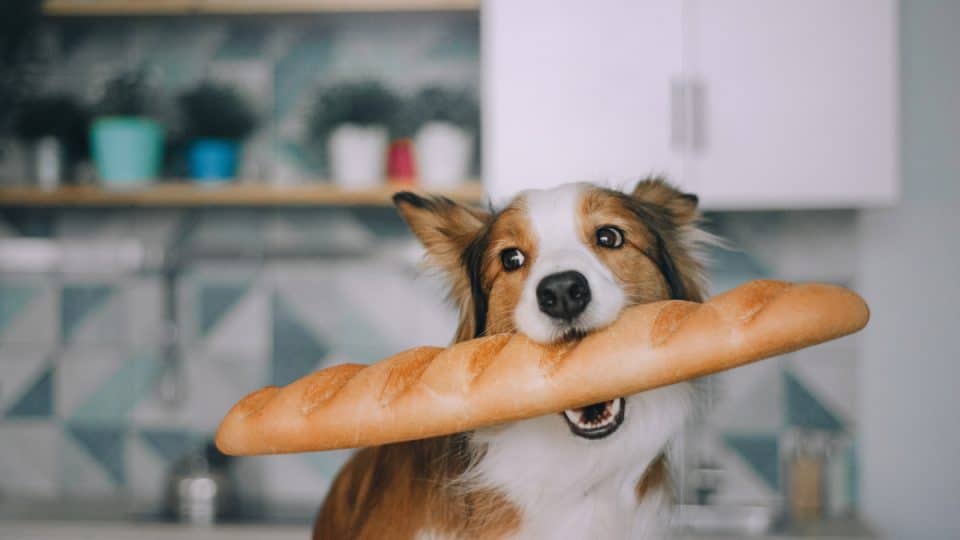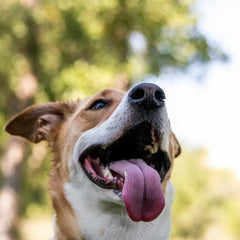Introduction
Bread is a staple in many households around the world, loved for its versatility and comforting taste. While it's a common part of human diets, many dog owners wonder: Is bread safe for dogs? In this comprehensive guide, we'll explore the relationship between dogs and bread, addressing common concerns and providing practical insights.
Bread Basics: What's in Your Loaf?
Understanding bread and its ingredients is crucial when determining its suitability for dogs. Most bread contains:
- Flour: Typically wheat, but can also be made from oats, barley, or other grains.
- Water
- Yeast: Helps the bread rise.
- Salt: For flavor.
- Additional ingredients: Such as sugar, milk, nuts, fruits, or spices, depending on the type.
Can Dogs Digest Bread?
In general, plain bread is not toxic to dogs. However, the nutritional value and potential risks vary based on the type and ingredients:
- White Bread: Easily digestible, but not nutritionally dense.
- Whole Grain Bread: Richer in nutrients and fiber but can be harder for some dogs to digest.
- Bread with Add-ins: Nuts, raisins, and certain spices can be harmful to dogs.
Potential Concerns with Bread
While bread itself isn't harmful, certain ingredients and types pose risks:
- 1. Raisins and Grapes: Even small amounts can be toxic to dogs.
- 2. Nuts: Especially macadamia nuts, which are toxic to dogs.
- 3. Xylitol: An artificial sweetener found in some bread can be deadly for dogs.
- 4. Excess Calories: Bread is calorie-dense, and regular feeding can lead to weight gain.

Bread and Dogs: Serving Suggestions
If you decide to treat your dog to bread:
- Serve in Moderation: Bread should be an occasional treat, not a regular part of their diet.
- Go Plain: Opt for bread without added sugars or toppings.
- Check Ingredients: Ensure there's no xylitol or other harmful ingredients.
- Be Observant: Monitor your dog after they consume bread to ensure no adverse reactions.
FAQs: Answering the Doughy Queries
1. Can bread cause bloating in dogs?
Yes, especially if consumed in large quantities. Yeast can cause gas to accumulate in the dog's digestive system, leading to discomfort and potential bloating.
2. My dog ate a slice of garlic bread. What should I do?
Garlic can be harmful to dogs. If your dog consumes a large quantity, or if you notice any signs of poisoning (vomiting, diarrhea, lethargy), contact your vet immediately.
3. Is homemade bread better for dogs?
Homemade bread allows you to control the ingredients, ensuring no harmful additives. However, bread, in general, should remain an occasional treat.
4. Can puppies eat bread?
It's best to avoid giving bread to puppies as their digestive systems are still developing. Stick to puppy-formulated foods and treats.
Conclusion
Bread, in moderation, can be a safe treat for many dogs. However, with the myriad of bread types and potential ingredients, it's crucial for dog owners to be vigilant. Always prioritize your dog's health and nutritional needs, ensuring they enjoy a balanced diet tailored to their unique requirements.




